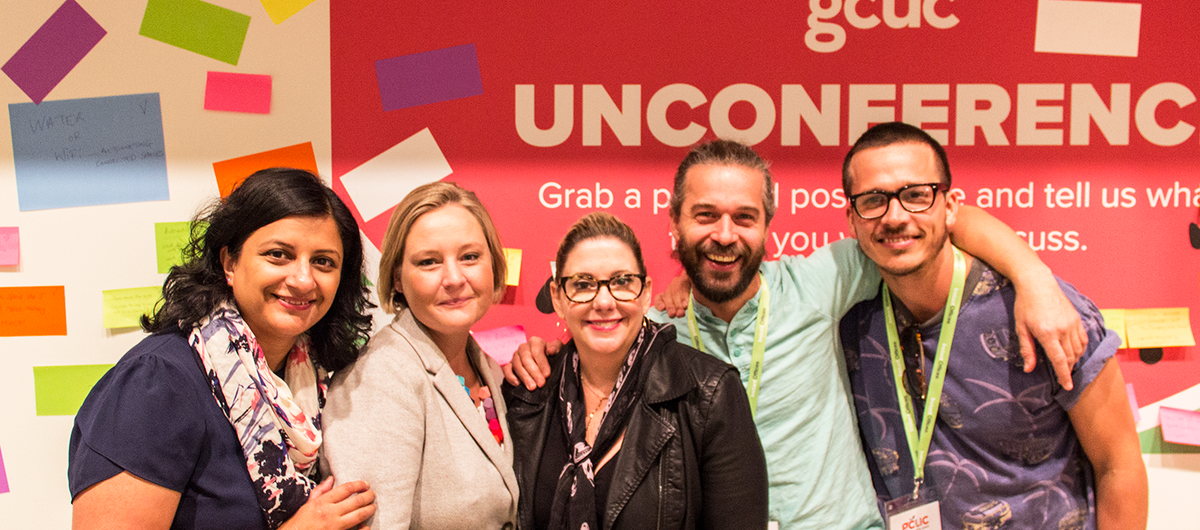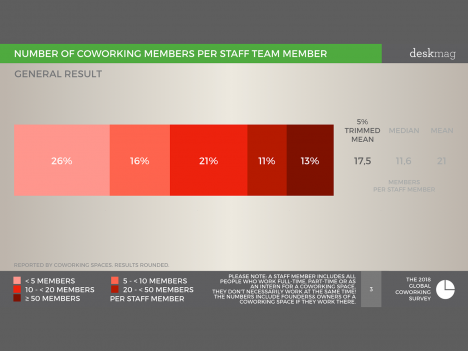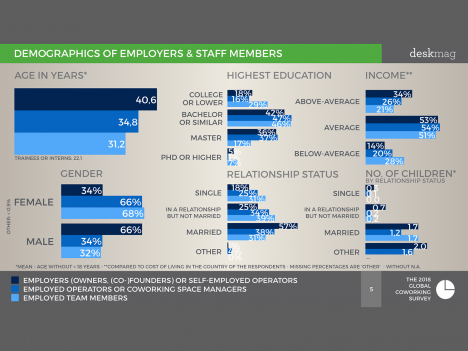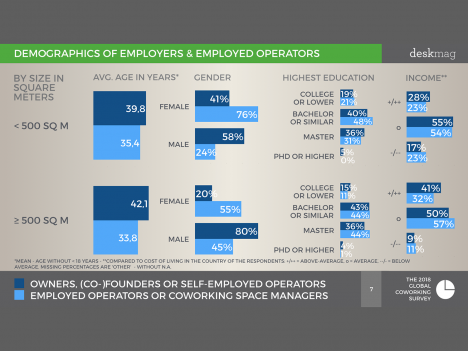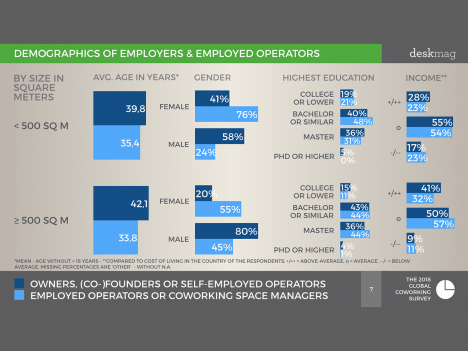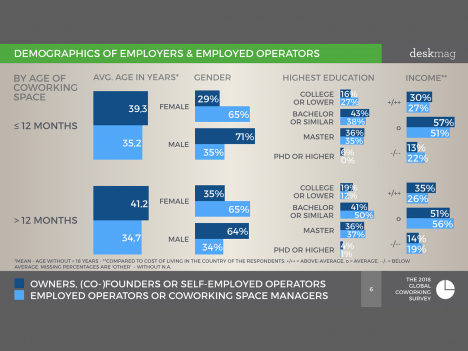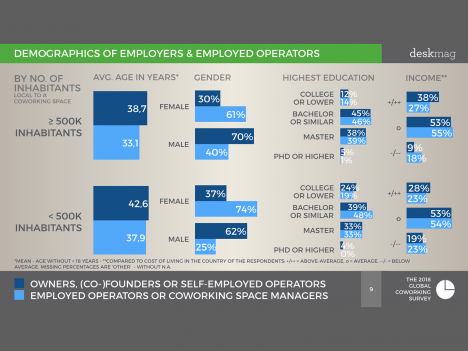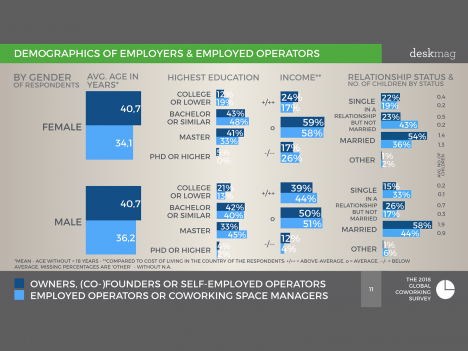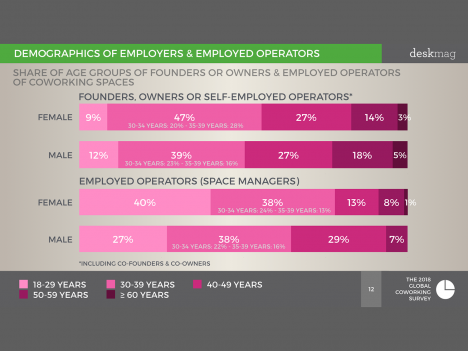Coworking spaces are female, or at least their staff are. More than two-thirds of salaried employees working for a coworking space are women.
Yet only a third of coworking spaces were founded by or are owned by women. Their relative share is likely to shrink in the future if the current trends continue. For starters, their share has already dropped slightly compared to last year. Secondly, men have increased their share among founders and owners of newer coworking spaces. Thirdly, coworking spaces are getting bigger every year, and the probability of a male founder grows with the increasing size of a space.
:::
The independent analysis of the 2018 Global Coworking Survey was supported by Essensys, Nexudus & WUN Systems. Download the free report here.
:::
This trend is also visible in the next hierarchical level. Larger coworking spaces tend to favor hiring men as operators or space managers. Ultimately, the coworking industry (at present) reflects the current social reality, rather than creating and fostering a more equal workforce.
There are exceptions. Just to name one, coworking spaces who are founded by and for female entrepreneurs. Women may also have better career opportunities and more options in many coworking spaces compared with other sectors. However, in general, the bigger the coworking space, the bigger the company and the higher the position within it, the more likely it is held by a man.
Female entrepreneurs and founders often have a higher level of education
This development is not based on better education. Nine out of ten women, who have set up or currently own a coworking space, have at least a bachelor’s degree. This figure stands at eight out of ten for men, although the average age of 41 years is the same regardless of gender. Conversely, 20% of men founded a coworking space without studying or completing their studies.
Male executives are older
Among employed space managers, men are more likely to have a higher level of education. However, at the age of 36, they are on average two years older than women holding the same position. 40% of employed female execs are younger than 30. This share stands at 27% among men. The age range of 35-49 years is especially underrepresented among women. Overall, gender-specific age differences are much more pronounced among employees, than among female and male founders and owners of coworking spaces.
Female employees run coworking spaces that are profitable rather than unprofitable
If run by employees, profitable coworking spaces are much more likely to be run by a woman than a man. The proportion of men in managing positions increases at unprofitable coworking spaces. This situation isn’t necessarily justified by gender, but by a broader background. There are no such differences among owners, it shows rather slightly the opposite.



